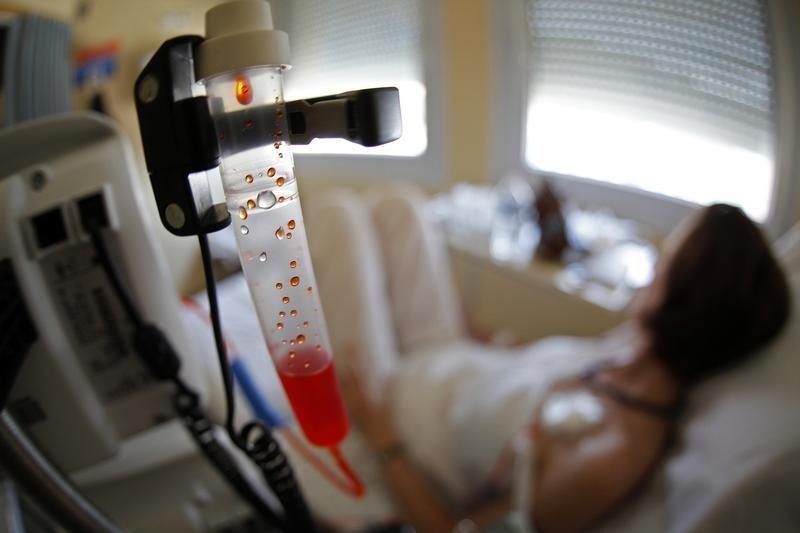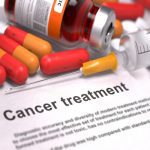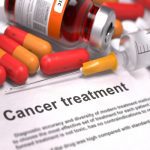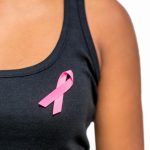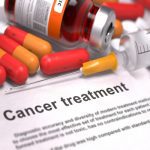European Medicines Agency (EMA) panel on Friday recommended against approving Puma Biotechnology’s lead breast cancer drug, an outcome the U.S drugmaker had signaled last month.
The EMA said the Committee for Medicinal Products for Human Use (CHMP) considered that while the drug lowered the risk of the cancer returning after initial treatment, it was uncertain the benefit would translate in clinical practice.
The drug, neratinib, also caused side effects, particularly diarrhea, in most patients and might be difficult to manage, the EMA said.
While final approvals are up to the European Commission, it generally follows the CHMP’s recommendation and endorses them within a couple of months.
Puma Biotech had on Jan. 23 said that neratinib was unlikely to get European regulatory approval without additional data, sending its shares down 30 percent that day.
Neratinib is designed to treat early-stage breast cancer in patients with the HER2 genetic mutation in which the tumor has been surgically removed and had been previously treated with Roche’s Herceptin.
The U.S. Food and Drug Administration has approved the drug.
European Medicines Agency (EMA) panel on Friday recommended against approving Puma Biotechnology’s lead breast cancer drug, an outcome the U.S drugmaker had signaled last month.
The EMA said the Committee for Medicinal Products for Human Use (CHMP) considered that while the drug lowered the risk of the cancer returning after initial treatment, it was uncertain the benefit would translate in clinical practice.
The drug, neratinib, also caused side effects, particularly diarrhea, in most patients and might be difficult to manage, the EMA said.
While final approvals are up to the European Commission, it generally follows the CHMP’s recommendation and endorses them within a couple of months.
Puma Biotech had on Jan. 23 said that neratinib was unlikely to get European regulatory approval without additional data, sending its shares down 30 percent that day.
Neratinib is designed to treat early-stage breast cancer in patients with the HER2 genetic mutation in which the tumor has been surgically removed and had been previously treated with Roche’s Herceptin.
The U.S. Food and Drug Administration has approved the drug.
European Medicines Agency (EMA) panel on Friday recommended against approving Puma Biotechnology’s lead breast cancer drug, an outcome the U.S drugmaker had signaled last month.
The EMA said the Committee for Medicinal Products for Human Use (CHMP) considered that while the drug lowered the risk of the cancer returning after initial treatment, it was uncertain the benefit would translate in clinical practice.
The drug, neratinib, also caused side effects, particularly diarrhea, in most patients and might be difficult to manage, the EMA said.
While final approvals are up to the European Commission, it generally follows the CHMP’s recommendation and endorses them within a couple of months.
Puma Biotech had on Jan. 23 said that neratinib was unlikely to get European regulatory approval without additional data, sending its shares down 30 percent that day.
Neratinib is designed to treat early-stage breast cancer in patients with the HER2 genetic mutation in which the tumor has been surgically removed and had been previously treated with Roche’s Herceptin.
The U.S. Food and Drug Administration has approved the drug.
European Medicines Agency (EMA) panel on Friday recommended against approving Puma Biotechnology’s lead breast cancer drug, an outcome the U.S drugmaker had signaled last month.
The EMA said the Committee for Medicinal Products for Human Use (CHMP) considered that while the drug lowered the risk of the cancer returning after initial treatment, it was uncertain the benefit would translate in clinical practice.
The drug, neratinib, also caused side effects, particularly diarrhea, in most patients and might be difficult to manage, the EMA said.
While final approvals are up to the European Commission, it generally follows the CHMP’s recommendation and endorses them within a couple of months.
Puma Biotech had on Jan. 23 said that neratinib was unlikely to get European regulatory approval without additional data, sending its shares down 30 percent that day.
Neratinib is designed to treat early-stage breast cancer in patients with the HER2 genetic mutation in which the tumor has been surgically removed and had been previously treated with Roche’s Herceptin.
The U.S. Food and Drug Administration has approved the drug.
European Medicines Agency (EMA) panel on Friday recommended against approving Puma Biotechnology’s lead breast cancer drug, an outcome the U.S drugmaker had signaled last month.
The EMA said the Committee for Medicinal Products for Human Use (CHMP) considered that while the drug lowered the risk of the cancer returning after initial treatment, it was uncertain the benefit would translate in clinical practice.
The drug, neratinib, also caused side effects, particularly diarrhea, in most patients and might be difficult to manage, the EMA said.
While final approvals are up to the European Commission, it generally follows the CHMP’s recommendation and endorses them within a couple of months.
Puma Biotech had on Jan. 23 said that neratinib was unlikely to get European regulatory approval without additional data, sending its shares down 30 percent that day.
Neratinib is designed to treat early-stage breast cancer in patients with the HER2 genetic mutation in which the tumor has been surgically removed and had been previously treated with Roche’s Herceptin.
The U.S. Food and Drug Administration has approved the drug.
European Medicines Agency (EMA) panel on Friday recommended against approving Puma Biotechnology’s lead breast cancer drug, an outcome the U.S drugmaker had signaled last month.
The EMA said the Committee for Medicinal Products for Human Use (CHMP) considered that while the drug lowered the risk of the cancer returning after initial treatment, it was uncertain the benefit would translate in clinical practice.
The drug, neratinib, also caused side effects, particularly diarrhea, in most patients and might be difficult to manage, the EMA said.
While final approvals are up to the European Commission, it generally follows the CHMP’s recommendation and endorses them within a couple of months.
Puma Biotech had on Jan. 23 said that neratinib was unlikely to get European regulatory approval without additional data, sending its shares down 30 percent that day.
Neratinib is designed to treat early-stage breast cancer in patients with the HER2 genetic mutation in which the tumor has been surgically removed and had been previously treated with Roche’s Herceptin.
The U.S. Food and Drug Administration has approved the drug.
European Medicines Agency (EMA) panel on Friday recommended against approving Puma Biotechnology’s lead breast cancer drug, an outcome the U.S drugmaker had signaled last month.
The EMA said the Committee for Medicinal Products for Human Use (CHMP) considered that while the drug lowered the risk of the cancer returning after initial treatment, it was uncertain the benefit would translate in clinical practice.
The drug, neratinib, also caused side effects, particularly diarrhea, in most patients and might be difficult to manage, the EMA said.
While final approvals are up to the European Commission, it generally follows the CHMP’s recommendation and endorses them within a couple of months.
Puma Biotech had on Jan. 23 said that neratinib was unlikely to get European regulatory approval without additional data, sending its shares down 30 percent that day.
Neratinib is designed to treat early-stage breast cancer in patients with the HER2 genetic mutation in which the tumor has been surgically removed and had been previously treated with Roche’s Herceptin.
The U.S. Food and Drug Administration has approved the drug.
European Medicines Agency (EMA) panel on Friday recommended against approving Puma Biotechnology’s lead breast cancer drug, an outcome the U.S drugmaker had signaled last month.
The EMA said the Committee for Medicinal Products for Human Use (CHMP) considered that while the drug lowered the risk of the cancer returning after initial treatment, it was uncertain the benefit would translate in clinical practice.
The drug, neratinib, also caused side effects, particularly diarrhea, in most patients and might be difficult to manage, the EMA said.
While final approvals are up to the European Commission, it generally follows the CHMP’s recommendation and endorses them within a couple of months.
Puma Biotech had on Jan. 23 said that neratinib was unlikely to get European regulatory approval without additional data, sending its shares down 30 percent that day.
Neratinib is designed to treat early-stage breast cancer in patients with the HER2 genetic mutation in which the tumor has been surgically removed and had been previously treated with Roche’s Herceptin.
The U.S. Food and Drug Administration has approved the drug.

